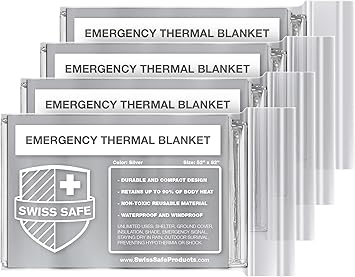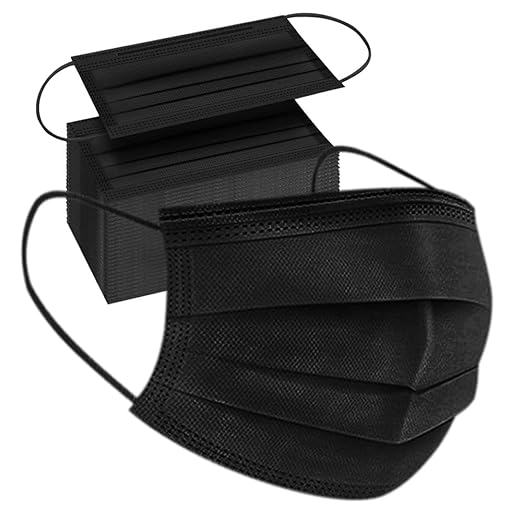Wildfire Preparedness Checklist

Wildfire Preparedness Checklist
 Fires can happen at any time of the night or day, but they do have one advantage for us which we don’t often have over things like earthquakes, tornadoes and other natural disasters: we usually have at least a few hours of warning before the wrath hits us. Before the wildfire strikes, you should have an emergency plan in place.
Fires can happen at any time of the night or day, but they do have one advantage for us which we don’t often have over things like earthquakes, tornadoes and other natural disasters: we usually have at least a few hours of warning before the wrath hits us. Before the wildfire strikes, you should have an emergency plan in place.
- Contact Information: First, get together your contact information. Make sure you have a printed out copy as the power may be out and you might not have access to your computer or documents. Include names and telephone numbers, as well as out-of-town friends or family who might be able to help you. It’s important to have an out-of-town friend listed because your friends who live in your town might not be able to help you if a wildfire affected them too.
- Get Small Bills: When the power goes out, ATM machines won’t work. Get plenty of one dollar bills because not many people will have change for twenty and hundred dollar bills. Try to aim for ones, fives, and tens.
- Get Gas: Fill your gas tank. When the power goes out, gas pumps won’t work.
- Charge Your Phone: Charge your cell phone. Keep a spare charging cable to use in your car. There are some solar-powered cell phone chargers too which will be vital should the power go out.
- Buy These Items: The following are items that could make a huge difference in case of a wildfire in your area. It’s better to have these items and not need them rather than need them and not have them.
- First Aid Kits: For $20, you can have medical supply basics — all in one place — and ready to use. Minor as well as major injuries are possible during an earthquake and it’s possible that emergency services will be overwhelmed, so having a first aid kit is essential.
- Solar Cell Phone Charger: Solar powered charges start in the mid-$20 range and go up from there. The best selling Amazon solar charger is $60 and is fast with “industrial-strength PET polymer faced solar panels sewn into a rugged polyester canvas offer weather-resistant outdoor durability.” If the power goes out, you might have no other way to charge your phone.
- Crank-Powered Radio: You can pay upwards of $100 for a decent crank radio, but you don’t have to spend that much. The best-selling Amazon crank radio is only $20!
- Emergency Water Filter: There’s no need for an expensive filtration system. The LifeStraw Personal Water Filter has 5,000 reviews and is only $20! The LifeStraw “removes minimum 99.9999% of waterborne bacteria, 99.9% of waterborne protozoan parasites, and filters to 0.2 microns; surpasses EPA filter standards.”
 Document Your Valuables: Make a list and take pictures of your valuables. I know, I know… This is one of those types of jobs which is always on the “to do” list but never actually makes it onto the “done” list, but if you have an inventory of your valuables and possessions you are likely to be able to claim up to 20% more insurance than if you don’t. Even people who are financially secure cannot really afford to replace all of their worldly possessions. If your home is hit by an earthquake and you lose your possessions and valuables, you’re bound to forget all about some of the items you have lost. So bite the bullet and make that list!
Document Your Valuables: Make a list and take pictures of your valuables. I know, I know… This is one of those types of jobs which is always on the “to do” list but never actually makes it onto the “done” list, but if you have an inventory of your valuables and possessions you are likely to be able to claim up to 20% more insurance than if you don’t. Even people who are financially secure cannot really afford to replace all of their worldly possessions. If your home is hit by an earthquake and you lose your possessions and valuables, you’re bound to forget all about some of the items you have lost. So bite the bullet and make that list!
- Bonus Tip: Use your smartphone camera or video to take pictures of everything in your home. A home safety deposit box can protect your valuable papers.
- Have an Evacuation Plan: If you have to evacuate, have an idea of where you might go and where you might stay. Remember if you have pets that you’ll need to find a pet-friendly place to stay.
- Have a “Go Bag”: Having an emergency bag packed with essentials (food, clothes, toiletries, cash, etc.) can save you time in a crisis. P.S. A little bit of toilet paper goes a long way…
- Bonus Tip: If you evacuate turn off all utilities, including electric, gas, and water, to your home.
- Have Your Medications: Make sure that you have plenty of your prescription medicines on hand. If a wildfire is approaching your area, the last thing you want to worry about is a medical emergency. Make sure that you have extra prescription medication containers available in plenty of time before a fire strikes.
- Have Your Important Papers: Keep all special papers and photographs in a watertight container or plastic bag. You know, all of those important things like bank account papers, birth certificates, property deeds, medical cards, social security cards, etc. as well as photos and important keepsakes which can never be replaced. During a disaster, they could all be ruined or burned up.
- Have a Food Stash: Make sure that you’ve got plenty of non-perishable food somewhere that can be accessed in case of a wildfire. Even though your town might try to help to supply food in the aftermath of a disaster, it’s really up to you to make sure that your family and yourself have got plenty of food and drinking water available.
- Educate Your Family: Make sure that all of your family knows about your emergency wildfire plan, escape routes, where the emergency kit is stored, and what to do in case of a wildfire.
 Have Camping Equipment: Obviously, tents and sleeping bags might not be the ideal accommodation but what if your home catches fire or is otherwise uninhabitable? What if you’re out of the fire danger zone but haven’t quite made it to your alternative accommodation? Although emergency shelters are sometimes available, it’s really a much better idea to make sure that you’ve got everything sorted out for yourself. Sleeping in a sleeping bag on the floor might not be ideal, but it sure beats sleeping on the floor without a sleeping bag.
Have Camping Equipment: Obviously, tents and sleeping bags might not be the ideal accommodation but what if your home catches fire or is otherwise uninhabitable? What if you’re out of the fire danger zone but haven’t quite made it to your alternative accommodation? Although emergency shelters are sometimes available, it’s really a much better idea to make sure that you’ve got everything sorted out for yourself. Sleeping in a sleeping bag on the floor might not be ideal, but it sure beats sleeping on the floor without a sleeping bag.- Fire Insurance: Check your homeowners’ policy to see if you are covered for fires. Also, check to see if your policy covers smoke damage.
- Plan for Your Pets: Many hotels and motels won’t accommodate your pets, so if your plan is to evacuate to a hotel, then you’ll need to find them a safe boarding kennels or cattery which is outside of the fire’s impact zone. Additionally, keep extra food on hand as pet food may be hard to find or buy during a natural disaster. Here are some emergency pet food options.
Wildfire Safety Kit Checklist
Basic Necessities: Stocking up on the following items is advisable in case of any disaster hitting your area.
- Flashlight
- Batteries
- First Aid Kit
- Solar Cell Phone Charger
- Crank-Powered Radio
- Emergency Water Filter
- Bottled Water (minimum of three gallons for each member of your family)
- Battery-Powered Radio
- Battery-Powered Lantern
- Emergency Food Supply
- Can Opener
- Basic Tools (utility knife, pliers, wrench, tape, compass)
- Toiletries (toothbrush, toothpaste, contact solution, toilet paper)
- Pencils and Paper
- Pet Supplies (food, litter)
- Rain Gear
- Sleeping Bag
- Change of Clothes
- Plastic Garbage Bags
Get prepared for emergencies with the Swiss Safe Emergency Blanket set. Each package includes four dual-sided aluminized mylar blankets in silver, as well as a bonus gold space blanket.
This combo-pack includes 100 AA and 100 AAA super alkaline batteries, delivering long-lasting power with 1.5 volts.
The flashlight features a ribbed design that provides a secure grip. Using advanced LED technology, it can provide up to 5 times brighter illumination than ordinary flashlights.
In case of an epidemic or pandemic during a disaster, consider including the following in your disaster kit:
9.6
This effective sanitizer eliminates 99.99% of germs and features a refreshing clean scent that evaporates quickly for convenient use when soap and water are not available.
8.6
Protect your hands from bacteria with the skin-friendly, durable, and ambidextrous Medpride vinyl single use gloves. Great for medical, industrial, and personal uses.
7.6
Protect yourself and your loved ones from harmful particles and allergens with this 100 pack of face masks.
Personal Documents: Make sure you have a waterproof container that you can stash the following in.
- Identification (copy of driver’s license or passport)
- Insurance Policies
- Birth Certificates
- Marriage Certificates
- Proof of Residence (copy of lease, mortgage documents)
- Deeds or Wills
- Tax Returns
- Social Security Cards





